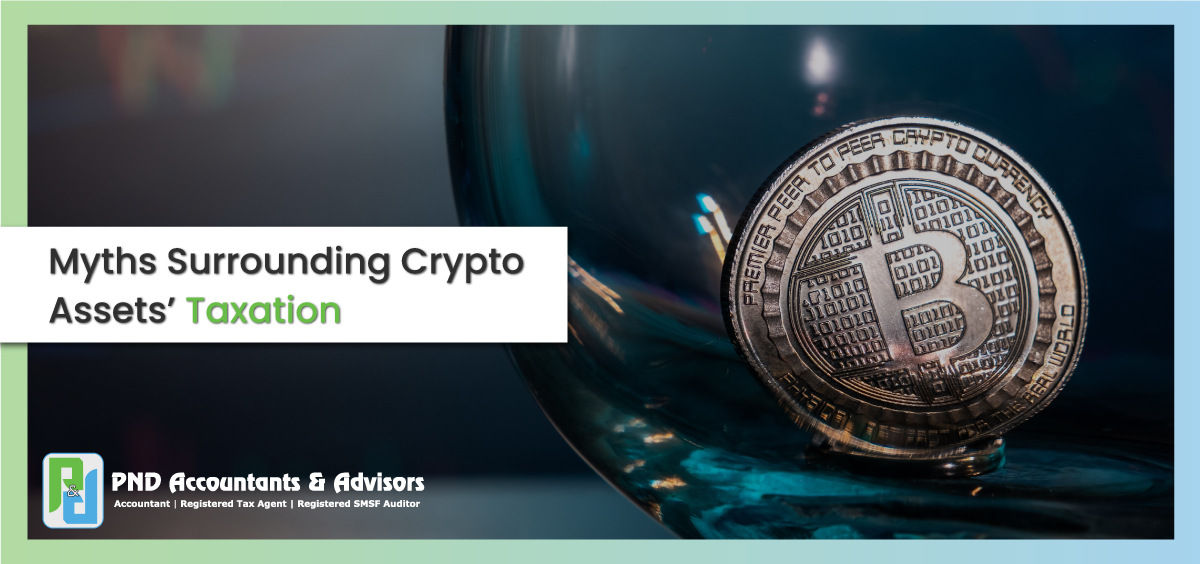As we all know, there is much to explain regarding cryptocurrency and crypto assets, their transactions and utility. Governments worldwide are still in the middle of mulling regulatory frameworks for crypto assets.
Part one explained cryptocurrency and how to manage crypto assets, tax-related liabilities, and norms. In part 2, we will focus on myths surrounding crypto assets.
There are many beliefs about cryptocurrency. Each individual has their understanding and opinion, so the sector is full of confusion. This confusion has given birth to many myths about crypto asset management. These are a few of the crucial myths we will settle today forever.
Myth: Cryptocurrency is for taxation:
The government of Australia has not considered cryptocurrency as a currency. Therefore, it is just a digital asset like shares in Demet’s account. Although you can use crypto assets to buy other crypto assets, consumer products, and other essentials, it is not an accepted denomination.
Since the Australian taxation office considers crypto as assets, they fall under the capital gain tax category and regular tax rates are applicable on crypto assets and gains through trading. Therefore, neither individuals nor businesses can pay their taxes in cryptocurrency, nor ATO can collect taxes in cryptocurrency.
Until cryptocurrency is accepted as a legal tender or currency with the value of crypto assets exchangeable with the Australian dollar, it can’t be used for taxation purposes.
Myth: Crypto Transactions are taxable when only converted to AUD:
Sometimes it is a pure misconception, and sometimes deliberate rumours are spread that cryptocurrency transactions are taxable only when converted to the Australian dollar.
The Australian dollar is a non-convertible currency, paper money determined by the Australian government through a special proclamation. Comparatively, crypto assets are exchangeable coins. Therefore, one can exchange or buy another crypto asset using one, while you can not purchase Australian dollars from the Australian government for investment purposes.
If you buy X crypto asset using Y cryptocurrency, the government of Australia will consider it as the disposal of one crypto asset. As explained earlier, crypto assets are considered digital assets; transactions within the same cryptocurrency or other are taxable.
However, transferring X amount of crypto assets from one wallet to another is not considered a transaction.
Myth: Crypto assets below $10000 are not taxable:
The primary understanding of the Australian Taxation Office is that crypto assets are for investment purposes and non-personal assets. However, there is an exception. You may receive the exemption if you prove that the crypto assets below $10K were bought to buy something else for personal use and not for investment purposes.
Unless you have utilised cryptocurrency in buying personal goods as instantly as you have bought them, you will not pay the tax. But if you hold on to crypto assets worth $9999 after purchasing, it will be considered an asset, and capital gain tax will be levied.
There is a twist as well. If you buy consumer goods using crypto assets purchased initially for investment purposes, ATO levies the capital gain tax on such assets.
Myth: Crypto buying as a hobby is not taxable
The days are gone when ATO believed that buying cryptocurrency was merely an expression of interest in the technology and that trading in cryptocurrency was experimental.
With the evolution of cryptocurrency, blockchain technology and non-fungible tokens, any purchase of a crypto asset is considered an investment for profit-making purposes; therefore, such transactions should invite taxation. Consequently, it is taxable even if you buy crypto assets for hobby purposes.
Myth: ATO can’t track crypto transaction
Agree that there is no specific law on cryptocurrency, its transactions and its legality, but that does not mean crypto transactions are outlawed and taxation agencies can’t track such transactions.
While all the countries are framing their cryptocurrency regulations, Australia’s anti-money laundering laws apply to cryptocurrency transactions. As a result, all digital asset exchanges operating in the country must comply with these laws and other rules to continue to operate.
Moreover, ATO has been running a crypto asset data matching program for the last three years. And have enough data from the designated service providers and crypto asset holders. Therefore, ATO can track any individual and their transactions on any exchange through this data.
Conclusion:
There are more myths around cryptocurrency and an ample amount of rumours too. However, the government of Australia and the Australian Taxation Office regularly publish information regarding confusion over crypto transactions and crypto assets.
If you are holding on to crypto assets or need advice regarding crypto trading and tax liabilities related to crypto assets, PND Accountants and Advisors is for you to seek the right advice. We have a team of experts on cryptocurrency who can manage your investment portfolio and assist you with the taxation guidance of crypto assets.




